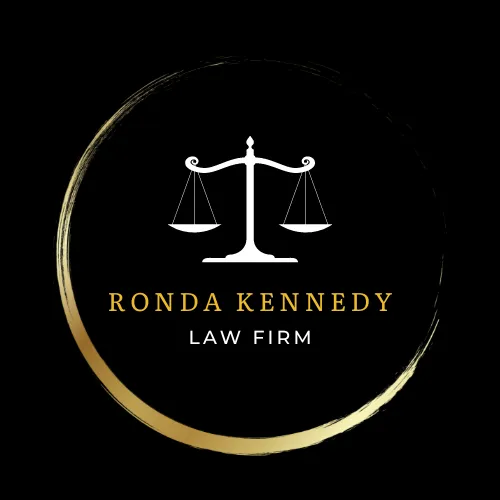Blogs

Chapter 7 Bankruptcy Demystified: Key Facts and Myths Explained
"Chapter 7 bankruptcy is not a setback; it's a fresh start for a debt-free future."
Filing for bankruptcy is a significant decision that many individuals face when dealing with overwhelming debt. Chapter 7 bankruptcy, also known as "liquidation bankruptcy," is one of the most common types of bankruptcy filings. However, it's also one of the most misunderstood. In this post, we'll break down the key facts about Chapter 7 bankruptcy and dispel some common myths with insights from the Ronda Kennedy Law Firm.
Understanding Chapter 7 Bankruptcy
Chapter 7 bankruptcy is designed to provide a fresh start for individuals who are struggling with debt. Unlike Chapter 13 bankruptcy, which involves a repayment plan, Chapter 7 allows for the discharge of most unsecured debts, such as credit card debt, medical bills, and personal loans. This process typically involves the liquidation of non-exempt assets to pay off creditors, though many people are surprised to learn that they can keep most, if not all, of their property.

Key Facts About Chapter 7 Bankruptcy
Eligibility Requirements: To file for Chapter 7 bankruptcy, you must pass a means test, which determines whether your income is low enough to qualify. The means test compares your income to the median income in your state. If your income is below the median, you typically qualify. If it's above, you may still qualify after deducting certain expenses.
Automatic Stay Protection: Upon filing for Chapter 7 bankruptcy, an automatic stay goes into effect, which temporarily halts most collection actions, including lawsuits, wage garnishments, and harassing phone calls from creditors. This provides immediate relief and allows you to breathe easier during the bankruptcy process.
Discharge of Debts: The primary benefit of Chapter 7 bankruptcy is the discharge of unsecured debts. Once your bankruptcy case is completed, you're no longer legally obligated to repay these debts. However, some debts, like student loans, child support, and certain taxes, are typically non-dischargeable.
Impact on Credit: While filing for Chapter 7 bankruptcy will negatively impact your credit score, many people find that their credit begins to improve within one to two years after filing. With responsible financial behavior, you can rebuild your credit and eventually qualify for new lines of credit.
Retention of Property: One of the biggest misconceptions about Chapter 7 bankruptcy is that you'll lose everything you own. In reality, most people who file for Chapter 7 are able to keep their essential assets, such as their home, car, and personal belongings, thanks to state and federal exemptions.
Common Myths About Chapter 7 Bankruptcy
Myth: Filing for Chapter 7 Bankruptcy Means You’re Financially Irresponsible
Reality: Many people who file for bankruptcy are dealing with circumstances beyond their control, such as medical emergencies, job loss, or economic downturns. Filing for Chapter 7 bankruptcy is a responsible way to take control of your financial situation and work towards a fresh start.Myth: You Will Lose Everything You Own
Reality: As mentioned earlier, most filers are able to retain their essential assets. The goal of Chapter 7 bankruptcy is not to leave you destitute but to help you manage your debt while maintaining a reasonable standard of living.Myth: Bankruptcy Will Ruin Your Financial Future
Reality: While bankruptcy does impact your credit score, it is not a financial death sentence. Many people find that they are able to rebuild their credit and achieve financial stability within a few years after filing. In some cases, filing for bankruptcy can even improve your financial situation by eliminating unmanageable debt and giving you a clean slate.Myth: Filing for Bankruptcy Is Complicated and Expensive
Reality: The process can seem daunting, but with the help of an experienced attorney, like those at the Ronda Kennedy Law Firm, filing for Chapter 7 bankruptcy can be straightforward and manageable. The costs associated with filing are also often outweighed by the benefits of debt relief and the fresh start it provides.
Conclusion
Chapter 7 bankruptcy is a powerful tool for those who find themselves overwhelmed by debt and unable to keep up with payments. By understanding the facts and dispelling the myths, you can make an informed decision about whether this option is right for you. If you're considering filing for Chapter 7 bankruptcy, the Ronda Kennedy Law Firm is here to guide you through the process and ensure your rights are protected. Contact us today for a consultation and take the first step towards financial freedom.
Bankruptcy Support with Compassion and Expertise.
As a dedicated Chapter 7 attorney, I provide compassionate legal guidance for individuals facing overwhelming debt. Chapter 7 bankruptcy offers a fresh start by discharging unsecured debts and allowing you to rebuild your financial life. I understand the stress and uncertainty that come with financial difficulties, and my goal is to help you navigate the bankruptcy process with clarity and confidence.

COMPANY
CUSTOMER CARE
LEGAL
FOLLOW US
Copyright © 2024 Ronda Kennedy - All Rights Reserved